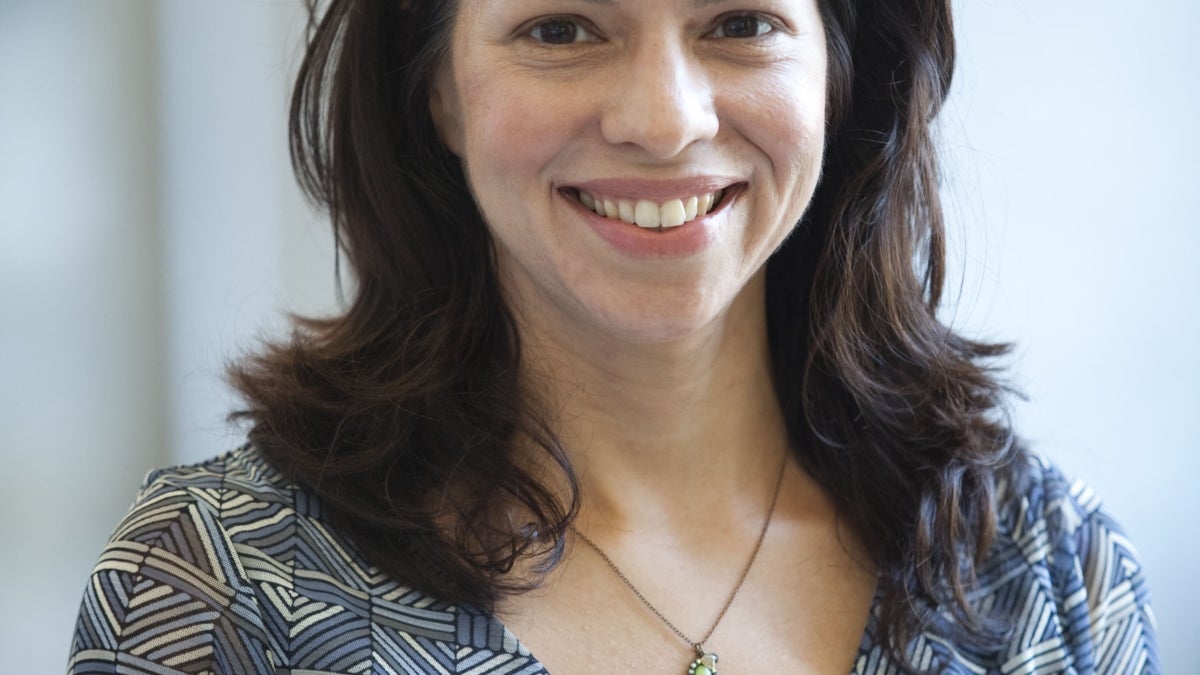Defense policy researcher joins ASU's School for the Future of Innovation in Society

Kathleen Vogel.
Academia wasn't the path Kathleen Vogel expected her career to take. She believed her interest in science policy and science and technology studies would lead to a position in government. But after what she calls some “exploratory career adventures,” she realized she wanted more intellectual freedom with her research.
"I felt an academic setting is one place where you can think and write what you want," said Vogel, who is joining Arizona State University's School for the Future of Innovation in Society as a professor and deputy director. "That appealed to me because some of my work took a more critical edge on policy issues."
Much of Vogel's work has focused on security issues, including assessing biological weapons threats. She became interested in the topic during an introductory course on science policy that she took while additionally pursuing her graduate studies.
"There was one week where we covered chemical weapons, and it was around the same time when there was concern over whether Saddam Hussein was secretly developing these weapons in Iraq," Vogel said. "Some of the readings we had in class were from scientists and policy experts who were advising the U.S. government or doing assessments of Iraq's chemical and biological weapons capability. I was intrigued by this topic. I thought studying this would be an unusual and different way to use my technical background."
Vogel has published a book on the topic, "Phantom Menace or Looming Danger?: A New Framework for Assessing Bioweapons Threats," which looks at how analysts assess bioweapons threats, and argues for an increased focus on the social and political context in which technological threats are developed. She is also studying how the U.S. intelligence community uses big data and artificial intelligence for intelligence assessments and has started researching potential links between natural disasters and increases in human trafficking.
"A lot of my research is case-study-focused," said Vogel. "A particular case or study will pull me into the issue."
Vogel has served as a Jefferson Science Fellow in the U.S. Department of State’s Office to Monitor and Combat Trafficking in Persons, and as a William C. Foster Fellow in the State Department’s Office of Proliferation Threat Reduction in the Bureau of Nonproliferation. She was also a Rutherford Fellow at the Alan Turing Institute, the U.K.’s leading data science research center. She earned her PhD in chemistry at Princeton, and most recently, she was an associate professor in the School of Public Policy at the University of Maryland. Even before joining the School for the Future of Innovation in Society, she was intrigued and curious about the work happening at the school.
“I feel (the school) is a place where you can try and do new and interesting things without some of the traditional barriers that you might run into at other universities,” said Vogel. “It’s an environment where you have so many new ideas, with people doing cutting edge and groundbreaking things. I'm excited to soak up everything that's happening in the school.”
More Science and technology

What does a spacecraft, a skeleton and an asteroid have in common? This ASU professor
NASA’s Lucy spacecraft will probe an asteroid as it flys by it on Sunday — one with a connection to the mission name.The asteroid…

Hack like you 'meme' it
What do pepperoni pizza, cat memes and an online dojo have in common?It turns out, these are all essential elements of a great…

ASU professor breeds new tomato variety, the 'Desert Dew'
In an era defined by climate volatility and resource scarcity, researchers are developing crops that can survive — and thrive —…

